Filter 3868 resources:
- media (464)
- social media (423)
- news (369)
- ai (346)
- facebook (337)
- disinformation (251)
- psychology (200)
- community (198)
- innovation (194)
- content strategy (192)
- productivity (171)
- tool (167)
- journalism (152)
- filter bubble (134)
- eu (132)
- curation (129)
- management (126)
- design (121)
- algorithm (110)
- llm (107)
- storytelling (103)
- comments (94)
- twitter (92)
- trump (89)
- politics (85)
- content marketing (84)
- blogging (81)
- promotion (81)
- myhub (78)
- video (76)
- content (76)
- creativity (75)
- medium (75)
- bot (73)
- science (70)
- publicsphere (68)
- trust (68)
- fediverse (66)
- strategy (65)
- audiovisual (64)
- covid19 (63)
- blockchain (62)
- google (62)
- us2020 (62)
- communications (61)
- data (60)
- privacy (60)
- organisation (58)
- participation (57)
- native advertising (57)
- metrics (56)
- ux (55)
- democracy (55)
- bloggingportal (55)
- factchecking (54)
- mobile (53)
- identity (50)
- newsletter (50)
- chatgpt (50)
- us (49)
- semantic (48)
- internal communications (48)
- digital transformation (47)
- longform (45)
- blog (45)
- advertising (45)
- troll (44)
- online architecture (44)
- ocm (44)
- startup (43)
- enewsletter (43)
- knowledge management (43)
- cognitive (43)
- marketing (43)
- data visualisation (42)
- leadership (40)
- data journalism (39)
- web design (39)
- linkedin (39)
- 2ndbrain (38)
- bluesky (38)
- polarization (38)
- engagement (37)
- machine learning (37)
- hr (36)
- conspiracy (36)
- regulation (36)
- employee engagement (35)
- project management (34)
- audience research (34)
- science journalism (34)
- collective intelligence (33)
- science communication (32)
- gender (32)
- multilingualism (32)
- autonomous (32)
- podcast (31)
- open web (31)
- taxibot (30)
- mastodon (30)
- guide (30)
- brexit (29)
- gtd (29)
- culture (28)
- ai4communities (28)
- groupthink (28)
- visualisation (27)
- augmented reality (26)
- instant articles (26)
- authenticity (26)
- censorship (26)
- evidence-based policy (26)
- visual (25)
- platform (25)
- collaboration (25)
- propaganda (24)
- seo (24)
- event (24)
- brussels bubble (24)
- interactive (23)
- business model (23)
- technology (22)
- nytimes (22)
- faq (22)
- policy (22)
- activitypub (21)
- future (21)
- search (21)
- zettelkasten (21)
- backfire effect (21)
- ethics (21)
- decentralised (20)
- obsidian (20)
- open source (20)
- transport (20)
- bias (20)
- snapchat (20)
- web (20)
- usa (20)
- web20 (20)
- surveillance (19)
- society (19)
- bbc (19)
- ec (18)
- humour (18)
- realtime (17)
- k4p (17)
- explainer (17)
- persuasion (17)
- instagram (17)
- newsroom (17)
- viral (17)
- bloggingportal2 (17)
- populism (17)
- moderation (17)
- atprotocol (17)
- transparency (17)
- bullshit (17)
- infographic (16)
- politicoeu (16)
- cambridge analytica (16)
- virtual reality (16)
- influence (16)
- delegitimise (16)
- fascism (16)
- bestof2015 (16)
- change (16)
- pr (16)
- writing (16)
- uk (15)
- ai prompt (15)
- disruption (15)
- roamresearch (15)
- minimalist (15)
- social marketing (15)
- cms (15)
- nlp (15)
- analytics (15)
- agile (14)
- copyright (14)
- information (14)
- big data (14)
- app (14)
- google+ (14)
- brand (14)
- intranet (14)
- qanon (14)
- top3pods (14)
- crowdsourcing (14)
- futurism (14)
- philosophy (14)
- meeting (14)
- slack (13)
- amp (13)
- gpt-x (13)
- attentionweb (13)
- addiction (13)
- yanss (13)
- dao (13)
- clickbait (13)
- training (13)
- messaging (13)
- animation (12)
- stream (12)
- happiness (12)
- post-truth (12)
- europcom (12)
- cory doctorow (12)
- editorial (12)
- hate (12)
- tv (12)
- echo chamber (12)
- mindfulness (12)
- html5 (12)
- ideation (12)
- ea (12)
- cards (12)
- personal (12)
- information architecture (12)
- massive.wiki (11)
- eurosceptic (11)
- chat (11)
- buzzfeed (11)
- annotate (11)
- egovernment (11)
- livestream (11)
- tribe (11)
- outreach (11)
- gdpr (11)
- confirmation bias (11)
- education (11)
- gamification (11)
- conversation (11)
- sceptic (10)
- bxlsbbl (10)
- lobby (10)
- russia (10)
- interface (10)
- ep (10)
- vote (10)
- presentation (10)
- machine translation (10)
- rss (10)
- apple (10)
- holacracy (10)
- publishing (10)
- gds (10)
- image (9)
- climate (9)
- deletefacebook (9)
- partisan (9)
- hoax (9)
- bitcoin (9)
- narratives (9)
- domestic (9)
- english (9)
- software (9)
- basic (9)
- atomisation (9)
- persona (9)
- workation (9)
- media literacy (9)
- intro (9)
- cofoe (9)
- knowledge graph (9)
- drupal (9)
- framework (9)
- free speech (9)
- ethan mollick (9)
- usability (9)
- election (8)
- eurosceptics (8)
- nostr (8)
- andy matuschak (8)
- api (8)
- narcissism (8)
- automation (8)
- ethereum (8)
- free (8)
- ui (8)
- (8)
- betaworx (8)
- 360video (8)
- tools (8)
- design thinking (8)
- blogpocalypse (8)
- centaur (8)
- euractiv (8)
- optimisation (8)
- europe (8)
- web development (8)
- ai-agent-gpt (8)
- responsive (8)
- antivaxxer (7)
- car (7)
- psychometrics (7)
- homepage (7)
- deep fake (7)
- wiki (7)
- twitter migration (7)
- circa (7)
- wikipedia (7)
- jeff jarvis (7)
- fblabrats (7)
- model collapse (7)
- memory (7)
- evolution (7)
- conference report (7)
- ello (7)
- screencast (7)
- email (7)
- quartz (7)
- europa (7)
- nft (7)
- b2b4me (7)
- notification (7)
- tumblr (7)
- cookies (7)
- office365 (7)
- theme (7)
- china (7)
- gif (6)
- blogger (6)
- google analytics (6)
- substack (6)
- experiment (6)
- sponsored content (6)
- ai search (6)
- gordon brander (6)
- meme (6)
- blogactiv (6)
- crm (6)
- outrage (6)
- pay4content (6)
- pilot (6)
- suppress (6)
- datamining (6)
- youtube (6)
- portal (6)
- expert (6)
- meaning (6)
- enshittification (6)
- truth (6)
- vine (6)
- bandwagon (6)
- moments (6)
- scrollytelling (6)
- campaign (6)
- help (6)
- jobtodo (6)
- personalisation (6)
- monetisation (6)
- bubble (6)
- vox (6)
- inscrutable (6)
- headline (6)
- coach (6)
- reddit (6)
- signaltonoise (6)
- coral (5)
- coda (5)
- joan westenberg (5)
- knowledge visualisation (5)
- subconscious (5)
- sublime (5)
- roi (5)
- game (5)
- letters2eu (5)
- economics (5)
- anti (5)
- fomo (5)
- open data (5)
- business (5)
- network theory (5)
- powerpoint (5)
- pkgbook (5)
- euro (5)
- post-alpha (5)
- euractiv-com (5)
- context (5)
- risk (5)
- it (5)
- local (5)
- rag (5)
- peakbot (5)
- vandenbrande (5)
- publicsector (5)
- fotl (5)
- expertise (5)
- discourse (5)
- pitch (5)
- youth (5)
- mooc (5)
- city (5)
- dni (5)
- guardian (5)
- web3 (5)
- share (5)
- team (5)
- product/market fit (5)
- brainstorming (5)
- themes (5)
- bundle (5)
- emotion (5)
- facebook live (5)
- ewrc2017 (5)
- debunk (5)
- antitrust (5)
- iot (5)
- compositional (4)
- longreads (4)
- indieweb (4)
- forgotten (4)
- diversity (4)
- open science (4)
- semanticweb (4)
- motivated (4)
- buffer (4)
- sentiment analysis (4)
- solid (4)
- networking (4)
- crowdfunding (4)
- whitewind (4)
- conference (4)
- langchain (4)
- author (4)
- threads (4)
- magazine (4)
- power (4)
- idpi (4)
- dissonance (4)
- impact (4)
- euroblog (4)
- autogpt (4)
- government (4)
- logo (4)
- authoritarianism (4)
- mybot (4)
- complex (4)
- social (4)
- blm (4)
- habit (4)
- tag (4)
- internet (4)
- amazon (4)
- trello (4)
- wordpress (4)
- ipr (4)
- australia (4)
- network effect (4)
- inoculation (4)
- biology (4)
- spaced repetition (4)
- cozyweb (4)
- trends (4)
- embedding (4)
- douglas rushkoff (4)
- learning (4)
- language (4)
- meta ventures (4)
- example (4)
- collaborate (4)
- comics (4)
- christine lemmer-webber (4)
- signal2noise (4)
- solutions journalism (4)
- statistics (4)
- planning (4)
- note (4)
- machine text (4)
- work (4)
- conversational (4)
- corporate journalism (4)
- dunning-kruger (4)
- competition (4)
- alpha phase (4)
- consultancy (4)
- p2p (4)
- perplexity.ai (4)
- notion (4)
- credibility (4)
- report (4)
- physics (4)
- understanding (4)
- smartcities (4)
- fbpaper (4)
- religion (3)
- social capital (3)
- music (3)
- pkm (3)
- remote (3)
- token (3)
- wapo (3)
- rebelmouse (3)
- readwise (3)
- pattern language (3)
- publication (3)
- paywall (3)
- framing (3)
- multimedia (3)
- globalisation (3)
- wechat (3)
- economy (3)
- research (3)
- sari azout (3)
- faceted search (3)
- 5whys (3)
- scicomm (3)
- mixed reality (3)
- library (3)
- eurocrap (3)
- fear (3)
- casey newton (3)
- lean canvas (3)
- co-creation (3)
- diverse (3)
- infowar (3)
- tourism (3)
- resources (3)
- defi (3)
- assistant (3)
- history (3)
- live (3)
- infopocalypse (3)
- quantum (3)
- adblock (3)
- misinform (3)
- digital (3)
- memex (3)
- values (3)
- dark pattern (3)
- multitasking (3)
- abtesting (3)
- harpa (3)
- data enrichment (3)
- openai (3)
- cryptocurrency 2.0 (3)
- scuttlebutt (3)
- logistics (3)
- willpower (3)
- data4policy (3)
- aggrefilter (3)
- pressrelease (3)
- interoperability (3)
- art (3)
- law (3)
- autosummarise (3)
- blogtour (3)
- network (3)
- agent (3)
- empathy (3)
- archive (3)
- adversarial interoperability (3)
- gmo (3)
- mobocracy (3)
- explanatory (3)
- slideshow (3)
- governance (3)
- radio (3)
- ft (3)
- robert putnam (3)
- llama (3)
- crisis (3)
- use case (3)
- ghost (3)
- scraping (3)
- filter (3)
- fail (3)
- comment (3)
- morality (3)
- sharepoint (3)
- template (3)
- consultation (3)
- ecosystem (3)
- transmedia (3)
- office (3)
- ibm (3)
- klout (3)
- paper (3)
- jerry michalski (3)
- posse (3)
- uber (3)
- intrapreneur (3)
- obama (3)
- open government (3)
- security (3)
- elon musk (3)
- behaviour (3)
- trending (3)
- opinion (3)
- health (3)
- hbr (3)
- millennials (3)
- silos (3)
- survey (3)
- goals (3)
- meditation (3)
- vc (3)
- mvp (3)
- meta (3)
- journal (3)
- wisdom (3)
- weeklyreview (3)
- service (3)
- usp (3)
- user (3)
- chatbot (3)
- digital garden (3)
- integrated (3)
- demographics (3)
- botshit (3)
- isis (2)
- medicine (2)
- liveblogging (2)
- skills (2)
- eparticipation (2)
- digg (2)
- purpose (2)
- task (2)
- plugin (2)
- tutorial (2)
- hoaxy (2)
- bioethics (2)
- synthesise (2)
- navigation (2)
- trade (2)
- overview (2)
- msword (2)
- spambot (2)
- finance (2)
- opencalais (2)
- m365 (2)
- video_conferencing (2)
- stowe boyd (2)
- entrepreneurs (2)
- liquid democracy (2)
- hosted (2)
- newsfeed (2)
- antiviral (2)
- healthcare (2)
- farcaster (2)
- how to (2)
- sensemaking (2)
- vice (2)
- timeline (2)
- yammer (2)
- quora (2)
- cx (2)
- smart contract (2)
- canonical debate lab (2)
- liberalism (2)
- planetary (2)
- open innovation (2)
- incubator (2)
- buzzbot (2)
- meritocracy (2)
- diaspora (2)
- online (2)
- livefyre (2)
- multisig (2)
- fiction (2)
- feed (2)
- arg (2)
- disgustology (2)
- geopolitics (2)
- peter kaminski (2)
- adaptive (2)
- prototype (2)
- myhub chat (2)
- wealth (2)
- agora (2)
- fivethirtyeight (2)
- career (2)
- prezi (2)
- hype (2)
- computational propaganda (2)
- digital natives (2)
- mermaid (2)
- label (2)
- flicc (2)
- agriculture (2)
- web2.0 (2)
- voice (2)
- internet of things (2)
- google assistant (2)
- ios (2)
- bookmark (2)
- alignment (2)
- useful (2)
- postmodern (2)
- learn (2)
- apathy (2)
- listicle (2)
- basecamp (2)
- kpi (2)
- ebook (2)
- perception (2)
- commonspub (2)
- micro.blog (2)
- emily m bender (2)
- crowdculture (2)
- brave (2)
- cognitive bias (2)
- documentary (2)
- river4 (2)
- guru (2)
- sales (2)
- bureaucracy (2)
- syndication (2)
- green (2)
- routine (2)
- reflectivity (2)
- maths (2)
- monopoly (2)
- mindhack (2)
- nudge (2)
- tiktok (2)
- chris aldrich (2)
- cooperatives (2)
- metaphor (2)
- conform (2)
- diigo (2)
- ltinnovate2016 (2)
- slideshare (2)
- procrastination (2)
- mojo (2)
- nsa (2)
- fleeting (2)
- cultural exchange (2)
- information-architecture (2)
- programme (2)
- civil rights (2)
- freedom (2)
- reader (2)
- reality (2)
- knowledge illusion (2)
- ibeacon (2)
- wellness (2)
- reinventing (2)
- telegram (2)
- colour (2)
- capitalism (2)
- npr (2)
- lobbying (2)
- facial blindness (2)
- pdf (2)
- intelligence (2)
- calendar (2)
- startupy (2)
- nasa (2)
- nuzzle (2)
- excalidraw (2)
- wearable (2)
- ted chiang (2)
- safety (2)
- keyword (2)
- loyalty (2)
- efficiency (2)
- gov2.0 (2)
- taxonomy (2)
- circa2 (2)
- metaverse (2)
- mapping (2)
- fedwiki (2)
- cor (2)
- 3d (2)
- spain (2)
- centralised (2)
- ifttt (2)
- gab (2)
- honesty (2)
- kickstarter (2)
- cities (2)
- backlink (2)
- icebucketchallenge (2)
- syndicated-translation (2)
- ngo (2)
- course (2)
- bloom (2)
- mediafr (2)
- plagiarism (2)
- geo (2)
- seenthis (2)
- bryan newbold (2)
- migration (2)
- scaling synthesis (2)
- plato (2)
- desirability (2)
- partnership (2)
- gawker (2)
- zapier (2)
- atlantic (2)
- cohesion (2)
- atavist (2)
- storyful (2)
- geofence (2)
- balance (2)
- pink slime (2)
- public affairs (2)
- freelancer (2)
- ma parent (2)
- standards (2)
- eci (2)
- early adopter (2)
- ai-image (2)
- eesc (2)
- supergirl (2)
- mentor (2)
- egov (2)
- reflections (2)
- meerkat (2)
- counter speech (2)
- nz (2)
- slidecast (2)
- osmo (2)
- energy (2)
- roaming (2)
- asana (2)
- language technology (2)
- game theory (2)
- ontology (2)
- ruben verborgh (2)
- edelman (2)
- d3 (2)
- code interpreter (2)
- selfish (2)
- twitterenvy (2)
- floc (2)
- genetic (2)
- inequality (2)
- venue (2)
- photography (2)
- social challenges (2)
- rationality (2)
- audio (2)
- text (2)
- flancian (2)
- curatorbot (2)
- khub (2)
- highlight (2)
- serendipity (2)
- python (2)
- blogosphere (2)
- h2020 (2)
- italy (2)
- eu09vs19 (2)
- gpt-4o (2)
- notebooklm (2)
- uncategorized (2)
- story (2)
- evidence (2)
- eparltv (2)
- employeeengagement (2)
- membership (2)
- version control (1)
- humility (1)
- pwa (1)
- yoyogi app (1)
- social login (1)
- open ledger project (1)
- hangout (1)
- steem (1)
- alpca (1)
- sub.club (1)
- grassroots (1)
- multisite (1)
- anthropomorphic (1)
- insurance (1)
- beeple (1)
- ginsburg (1)
- bookmarklet (1)
- rel8 (1)
- speaker (1)
- epale (1)
- data void (1)
- integrate (1)
- nextcloud (1)
- air (1)
- patchwork (1)
- boris mann (1)
- timing (1)
- register (1)
- truthbuzz (1)
- bestpractice (1)
- small is beautiful (1)
- perennial (1)
- tracking (1)
- defensibility (1)
- comparison (1)
- miro (1)
- oecd (1)
- dark forest web (1)
- lisp (1)
- accreditation (1)
- gdrive (1)
- ntopic (1)
- human (1)
- eu-treaty-institutions (1)
- spitzenkanditaten (1)
- notd (1)
- epistocracy (1)
- ghostreader (1)
- biased assimilation (1)
- telework (1)
- personality (1)
- ezra klein (1)
- sensors (1)
- aspire (1)
- ukraine (1)
- vr (1)
- visualization (1)
- coase (1)
- vsop (1)
- slow news (1)
- commoditisation (1)
- accessibility (1)
- continuous scroll (1)
- block (1)
- blackpr (1)
- diig (1)
- cmv (1)
- urbit (1)
- “illusory (1)
- delusion (1)
- distributed (1)
- nautilus (1)
- periscope (1)
- chameleon (1)
- ektron (1)
- sparse data (1)
- the conversation (1)
- smart connections (1)
- life-in-belgium (1)
- ward cunningham (1)
- alphafold (1)
- thought leadership (1)
- crosspost (1)
- lgbt (1)
- quaero (1)
- gems app (1)
- intrasoft (1)
- bill anderson (1)
- esport (1)
- tailwind (1)
- corruption (1)
- liberating structures (1)
- jagged frontier (1)
- entrainment (1)
- slacktivism (1)
- jtbd (1)
- messenger (1)
- briefing (1)
- title (1)
- tabloid (1)
- electric vehicle (1)
- dataview (1)
- listen (1)
- listapp (1)
- 3p framework (1)
- clubhouse (1)
- blendle (1)
- airbnb (1)
- eu2024 (1)
- capacities (1)
- woke (1)
- word2vec (1)
- subcontractors (1)
- webgl (1)
- speech to text (1)
- book (1)
- fastlane (1)
- drone (1)
- cloud (1)
- ssi (1)
- structure (1)
- ite (1)
- soonfeed (1)
- programming (1)
- bug (1)
- cardsort (1)
- videp (1)
- emergingus (1)
- scrivener (1)
- jelly (1)
- european parliament (1)
- hedgehog (1)
- bertelsmann (1)
- support (1)
- nfc (1)
- garden (1)
- qms (1)
- native (1)
- furniture (1)
- tone (1)
- mixture of experts (1)
- citizen journalism (1)
- customer support (1)
- altright (1)
- rail (1)
- infosociety (1)
- slide (1)
- combinatorial (1)
- lofi (1)
- nhscitizen (1)
- disrupt (1)
- chainlink (1)
- custom instructions (1)
- update (1)
- doge (1)
- rebut (1)
- eptv (1)
- richard medic (1)
- dell (1)
- css (1)
- o'reilly (1)
- curiosity (1)
- milo (1)
- koodos (1)
- ombudsman (1)
- bingchat (1)
- resilience (1)
- quiz (1)
- yahoo (1)
- ted (1)
- sensecraft (1)
- digital civility (1)
- self-management (1)
- newsguard (1)
- geny (1)
- splinternet (1)
- debatehub (1)
- bayes (1)
- teal (1)
- skyfeed (1)
- 2014 (1)
- open social (1)
- snowden (1)
- sapiens (1)
- protocol (1)
- ecas (1)
- workspace (1)
- robot (1)
- screencapture (1)
- ideas (1)
- stochastic parrot (1)
- category (1)
- region (1)
- landing page (1)
- documentation (1)
- menu (1)
- content shock (1)
- binggpt (1)
- discord (1)
- ubi (1)
- vlog (1)
- wikinews (1)
- public-space (1)
- insurrection (1)
- democrats (1)
- socialhome (1)
- edge (1)
- weltschmerz (1)
- anonymity (1)
- germany (1)
- mba (1)
- freedumb (1)
- theoretical physics (1)
- augmented intelligence (1)
- einstein (1)
- immigration (1)
- anuj ahooja (1)
- ip (1)
- omission (1)
- genius (1)
- hootsuite (1)
- parse.ly (1)
- micro-moment (1)
- smart dust (1)
- specialist (1)
- nerd (1)
- flipboard (1)
- etf (1)
- overload (1)
- happeningo (1)
- sidechain (1)
- groupfeel (1)
- d2d (1)
- pinterest (1)
- excel (1)
- rural (1)
- technocracy (1)
- stack overflow (1)
- scarcity (1)
- w3c (1)
- uncertainty (1)
- colfdusion (1)
- myhub pinboard (1)
- spin (1)
- lexicon (1)
- insurge (1)
- luck (1)
- european (1)
- storyboard (1)
- mediumform (1)
- ussr (1)
- tftmap (1)
- wicked (1)
- sponsor (1)
- pubhub (1)
- science-research (1)
- hubspot (1)
- pluriverse (1)
- spritely (1)
- arrogance (1)
- humanity (1)
- publicsectorinformation (1)
- geoengineer (1)
- streamlit (1)
- sage (1)
- wikileaks (1)
- isismediablackout (1)
- questy (1)
- seeding (1)
- spotify (1)
- referrals (1)
- nat eliason (1)
- white papers (1)
- glue work (1)
- pluralistic ignorance (1)
- jasper (1)
- tabula (1)
- dropbox (1)
- eaststratcom (1)
- ugc (1)
- blacksky (1)
- data analysis (1)
- programmatic (1)
- scandinavia (1)
- newscred (1)
- anonymous (1)
- dellhell (1)
- hashgraph (1)
- consent (1)
- dialogue (1)
- devops (1)
- kevin marks (1)
- student (1)
- samsung (1)
- new public (1)
- geolocation (1)
- tackk (1)
- eeas (1)
- neural link (1)
- sortition (1)
- putin (1)
- shortform (1)
- consciousness (1)
- wireframe (1)
- persona prompt (1)
- casestudy (1)
- whatsapp (1)
- imported (1)
- viber (1)
- presseurop (1)
- timeline.js (1)
- overtask (1)
- inspiration (1)
- radicalisation (1)
- weird (1)
- accelerator (1)
- investment (1)
- gmail (1)
- wikitribune (1)
- goodwill (1)
- status anxiety (1)
- intuition (1)
- ixd (1)
- specification gaming (1)
- specialised (1)
- participatory culture (1)
- work processing (1)
- adolescence (1)
- flow state (1)
- wayback (1)
- fox (1)
- overton window (1)
- twxplorer (1)
- lockss (1)
- experience (1)
- stuck (1)
- google glass (1)
- stacked note (1)
- seamful (1)
- generative art (1)
- multiplayer (1)
- smo (1)
- hive (1)
- snowfall (1)
- cancer (1)
- consumer (1)
- recursion (1)
- gatsby (1)
- cui bono (1)
- chinese (1)
- dunbar (1)
- rantic (1)
- ambition (1)
- essena (1)
- surprisal (1)
- hxc (1)
- mistral (1)
- critical theory (1)
- innovation-and-growth (1)
- cyborg (1)
- traffic (1)
- camtasia (1)
- play (1)
- reinforcement learning (1)
- yellow-card (1)
- presidency (1)
- film (1)
- googledrive (1)
- detect (1)
- cio (1)
- yeats (1)
- gravity (1)
- indignation (1)
- tips (1)
- convert (1)
- eureka (1)
- coffee (1)
- data union (1)
- kanban (1)
- noam chomsky (1)
- oatmeal (1)
- genz (1)
- kek (1)
- epsc (1)
- drive (1)
- opengov (1)
- monitoring (1)
- symbols (1)
- shieldlaw (1)
- apocalypse (1)
- blocklist (1)
- parler (1)
- github (1)
- giannigiacomelli (1)
- illusory (1)
- stanbol (1)
- frontpage.fyi (1)
- autogen (1)
- brain (1)
- intimacy (1)
- negativity bias (1)
- think (1)
- transcript (1)
- napkin ai (1)
- reference frame (1)
- friendica (1)
- reading queue (1)
- pro (1)
- digitaldiplomacy (1)
- list (1)
- hypothes.is (1)
- knowledge panel (1)
- solr (1)
- salesforce (1)
- faiss (1)
- disco (1)
- referendum (1)
- apache (1)
- newsana (1)
- craft (1)
- deadbot (1)
- elaboration (1)
- capgras (1)
- ai-vision (1)
- data portability (1)
- transhuman (1)
- agi (1)
- ipfs (1)
- laloux (1)
- syllabus (1)
- index (1)
- eu-priorities-and-opinion (1)
- primal (1)
- polbot (1)
- justin garrison (1)
- line (1)
- kindness (1)
- #ilooklikeanengineer (1)
- meps (1)
- grift (1)
- fractal (1)
- crowdtangle (1)
- inclusion (1)
- eurosplinternet (1)
- database (1)
- linked data (1)
- talia stroud (1)
- eli pariser (1)
- pipeline (1)
- ourobouros (1)
- buzz (1)
- votewatch (1)
- warning (1)
- maestro app (1)
- autocorrelation (1)
- oracle (1)
- snapshot (1)
- ep2014 (1)
- overfitting (1)
- bluesky custom feeds (1)
- search-or-create (1)
- truth psychology (1)
- llama2 (1)
- upworthy (1)
- lexii.ai (1)
- unreality (1)
- international (1)
- ostrom (1)
- telepresence (1)
- spectacles (1)
- freeourfeeds (1)
- hume (1)
- argdown (1)
- paradigm (1)
- cro (1)
- false memory (1)
- deep learning (1)
- statup (1)
- content partnership (1)
- speed (1)
- threadapalooza (1)
- adobe (1)
- terrorism (1)
- social-media (1)
- onboarding (1)
- programmes (1)
- section230 (1)
- test (1)
- myers briggs (1)
- mtf (1)
- sill (1)
- lifelonglearning (1)
- expiration (1)
- information laundering (1)
- belgium (1)
- quality (1)
- membrain (1)
- friendship (1)
- ub (1)
- storyline (1)
- twins (1)
- evgeny morozov (1)
- boredom (1)
- choice (1)
- ibm watson (1)
- theatre (1)
- compass news (1)
- review (1)
- loforo (1)
- trove (1)
- sociology (1)
- heart (1)
- circuit-breaker (1)
- inception (1)
- cluetrain (1)
- upday (1)
- portfolio (1)
- zuboff (1)
- profile (1)
- pets (1)
- matrix (1)
- imdb (1)
- process (1)
- empath (1)
- flux garden (1)
- bridgit (1)
- prompt engineering (1)
- 3dprinting (1)
- microsoft (1)
- harvest (1)
- bootstrapping (1)
- open access (1)
- euelections2019 (1)
- trust net (1)
- anger (1)
- sane app (1)
- adaptive content (1)
- firefox (1)
- bonfire (1)
- muckread (1)
- reflect (1)
- hololens (1)
- horizonprogramme (1)
- llmo (1)
- life (1)
- znlive (1)
- launch (1)
- creativecommons (1)
- crime (1)
- rebuttal (1)
- justice-home-affairs (1)
- liability (1)
- imposter syndrome (1)
- optimism (1)
- i-book (1)
- o1 (1)
- unfinished (1)
- documentum (1)
- glossary (1)
- po.et (1)
- rewild (1)
- cpms (1)
- guidelines (1)
- ambassador (1)
- litmus (1)
- fwb (1)
- peak (1)
- elearning (1)
- bard (1)
- dynamics (1)
- wargame (1)
- al (1)
- rationalisation (1)
- chipotle (1)
- moc (1)
- nature magazine (1)
- fakebox (1)
- commonplace (1)
- anthropocentric (1)
- euvsdisinfo (1)
- philippines (1)
- fuego (1)
- polls (1)
- manufacturing (1)
- arena (1)
- will storr (1)
- social fiction (1)
- original (1)
- farm (1)
- custom search (1)
- loqseq (1)
- sidewire (1)
- quantum computing (1)
- filecoin (1)
- screen writing (1)
- extraheric (1)
- halo (1)
- blockstream (1)
- dissemination (1)
- seme (1)
- customers (1)
- cookiepocalypse (1)
- sf (1)
- broadcast (1)
- dall-e3 (1)
- citizenship (1)
- homophily (1)
- define (1)
- deplatform (1)
- cancel culture (1)
- wallet (1)
- group (1)
- react (1)
- boston consulting group (1)
- linear (1)
- upshot (1)
- vomit (1)
- zappos (1)
- assist (1)
- criti-hype (1)
- map (1)
- moodlenet (1)
- hyperknowledge (1)
- video editing (1)
- chinese room (1)
- extraction (1)
- design competition (1)
- altruism (1)
- assimilation (1)
- paid (1)
- forum (1)
- foxhog (1)
- poetry (1)
- client (1)
- bridge (1)
- plexus (1)
- grow (1)
- customise (1)
- scale (1)
- alan blackwell (1)
- llamaindex (1)
- benchmarking (1)
- fintech (1)
- independence (1)
- ludicity (1)
- reversal curse (1)
- deep canvassing (1)
- richard dawkins (1)
- liquid (1)
- time (1)
- guardrail (1)
- ulysses pact (1)
- playbook (1)
- saas (1)
- quit (1)
- embodiment (1)
- myanmar (1)
- plandemic (1)
- channel (1)
- phanpy (1)
- mental health (1)
- length (1)
- reframing (1)
- popvox (1)
- butter (1)
- right (1)
- orbit (1)
- meaning alignment institute (1)
- ipad (1)
- inbox zero (1)
- workflow (1)
- tracker (1)
- christopher manning (1)
- contact (1)
- glass (1)
- zenkit (1)
- singularity (1)
- intern (1)
- fraud (1)
- christensen (1)
- hungarian (1)
- euelecitons2019 (1)
- virtual (1)
- moloch (1)
- social physics (1)
- dopamine (1)
- sift (1)
- clickup (1)
- mep (1)
- enpi (1)
- vector database (1)
- markup (1)
- bedrock (1)
- apple news (1)
- moodle (1)
- raf (1)
- twitter cards (1)
- lists (1)
- schema.org (1)
- answer engine (1)
- storymapjs (1)
- dikw (1)
- toptask (1)
- rdf (1)
- smartsheet (1)
- peace data (1)
Relevant Overviews
- Communication Strategy
- Content Strategy
- Online Strategy
- Online Community Management
- Social Media Strategy
- Content Creation & Marketing
- Online Architecture
- Digital Transformation
- Change & Project Management
- Thinking tools
- Zettelkasten
- Fediverse
- Learning from Andy Matuschak
- Blockchain, Crypto, NFTs etc
- Innovation Strategy
- Surveillance Capitalism, Social media and Polarisation (Overview)
- Communications Tactics
- Psychology
- Personal Productivity
- Social Web
- Media
- Politics
- Communications Strategy
- Science&Technology
- Business
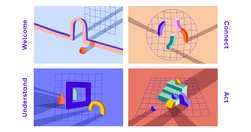
New Public "spent two years reviewing the literature and talked to over 100 experts from disciplines ranging from social psychology to urban planning about the qualities of flourishing public, or semi-public, spaces" for their Building better digital public spaces report. The goal: "to support engineers, designers and builders who w…
More or less exactly what I described in my PKG Chapter, although that includes AI and it's not clear that orbit does. "As you read, Orbit occasionally prompts you with quick questions to reinforce the ideas ... after a few days, Orbit will send you an email ... If you still remember an answer, you’ll next see it two weeks later. Then a …
"a root cause of the messy state of Information Architecture in large institutions and on the web today... application-centric mindset... remedy: ... Data is the center of the universe; applications are ephemeral.""systems could be more than an order of magnitude cheaper and more flexible" if data-centric key principles are res…

"I first decided to try scribing the Betaworx Render session on Plexus using Obsidian and try publishing it via GitHub (context). That didn't work, so when I saw [[rtnf md]] I thought I'd give it a whirl... the idea [of Plexus] is simple:post your thoughts into a defined shared brain on Plexus - eg : https://render.plexus.earth/the …
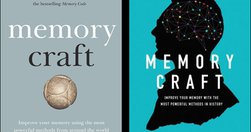
"Memory Craft introduces the best memory techniques humans have ever devised, from ancient times and the Middle Ages, to methods used by today’s memory athletes... offers proven techniques for teachers to help their students ... simple strategies for anyone who has trouble remembering ... older people who want to keep their minds agile

Systems with Design from Trust: assume most (not all) people have good intent."initially feel counterintuitive, even risky...social: they rely on human relationships. appealing: once you wrap your head around them, you want more."The discomfort is a symptom of how today's default setting is mistrust: "we’ve internalized the ass…
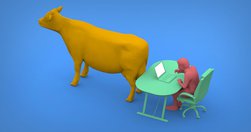
"Do you have a job that you secretly believe is pointless?... you have a “bullshit job.”", and so do "millions of ... clerical workers, administrators, consultants, telemarketers, corporate lawyers, service personnel...".We built enough tech to free us, but instead "we’ve invented a whole universe of futile occupations tha…
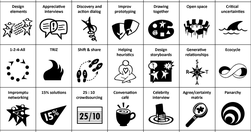
Liberating Structures is a pattern language that "provides a menu of thirty-three Liberating Structures to replace or complement conventional practices... [which are] either too inhibiting (presentations, status reports and managed discussions) or too loose and disorganized (open discussions and brainstorms) to creatively engage people ... to…

Good starting point on pattern languages, ends with useful links.As a definition of what a pattern is: "a proven solution to a problem in a context. Each one documents a reusable solution, encapsulates knowledge about successful practices, and provides information about its usefulness and tradeoffs... Connected sets of interrelated patterns …
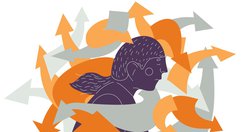
I do like a challenge."We live in the most distracted time in human history. Can we reclaim our attention spans?... A new book by the British journalist Johann Hari, called Stolen Focus, takes a close look at what’s happening — and what’s happened — to our collective attention... we’re all becoming lost in our own lives, which feel more and …
Kevin Marks used his personal site to scribe the Betaworx Render ToolsforThought conference (context), and I'm intrigued. Like a lot of scribed notes, it's difficult to follow, although there are plenty of good quotes. But every quote seems linked to a URL for the speaker (Twitter account, website), and given the speed of writing there&#…
Flancian of course used his Agora to scribe the Betaworx Render ToolsforThought conference (context). Like most Agora nodes it's very long - here are some highlights that stood out for me at the time of writing (his notes, like mine, are unfinished):On the risk of being a productivity geek: ""The pattern we see is people optimizing…
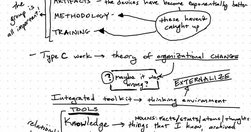
Another scribe of the Betaworx Render conference on Thinking Tools (context), this time in good old-fashioned blogpost form, with scans of handwritten notes to boot. Contrasting this with some of the other annotations, it's a good example of the difference between "someone else's notes" and "someone else's blog post&q;…
Chris Aldrich asks: "is anyone actively using Hypothes.is as an off-label zettelkasten just by itself?... [it has] most of the basic functionalities:imple note taking,Notes are editable and update-able,There’s a tag functionality for indexing notes,One can add links to other notes to cross link them if they liked,There’s a reasonably good sea…
"What does it look like to design a system [the internet] for survivability?" This different question - not design for efficiency, or profitability - led "to different answers, and breakthroughs that made the internet we have today".Rather than protect something, "the r-selected response ... LOCKSS stands for "Lots o…
One of the scribes from the Betaworx Render TfT conference (context): "The discussion of AI/ML/semantic-woo was one trigger for me adding some notes about the manual process of Digital Gardening... some folks are tweeting with hashtag ToolsforThinking."Like anyone's notes, these are hard for someone else to follow, although they do …
Notes on Gordon Brander's demo at the Render conference (context): "I’m using different note-taking tools to scribe different conference sessions - this Hedgedoc was automatically created by [[flancian]]'s [[an agora]] page for the conference".He introduces Noosphere, a lowlevel permissionless p2p protocol he hopes will allow …
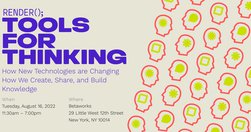
"we'll be exploring new advancements in the space ... taking tours of new projects, learning about knowledge graphs as public resources, discussing recent advancements in AI and ML in understanding semantic meaning of ideas... how we use these tools ourselves."I joined a small posse of people organised byJerry Michalski to scribe th…
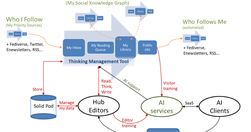
I've been invited to write a chapter for an upcoming book on Personal Knowledge Graphs (PKG). My chapter will encompass each user’s PKG, the Social Knowledge Graph created by networking them together via the Fediverse, Solid hosting, AI writing tools and Decentralised Autonomous Organisations.This post provides a first draft of its Introducti…
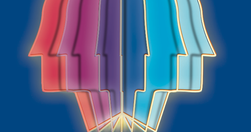
Win my place at David McRaney ’s upcoming workshop by helping me write a chapter in an upcoming book on Personal Knowledge Graphs.
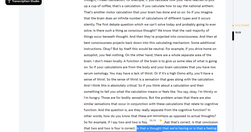
A short experiment on getting the most out of podcasts by using speech-to-text engines to create rtanscripts. TL:DR:Welder’s excellent and free; Otter.ai’s got some amazing features, but it’s pricey; just forget Google.
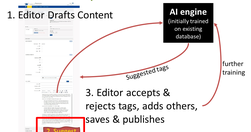
A neural network to help web content authors efficiently and completely characterise their content using the site taxonomy. Accuracy improves with use.
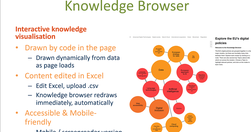
An interactive knowledge visualisation providing a graphical overview of interrelated online concepts, edited dynamically with an Excel file. Featuring an accessible version driven by the same content.
I've been invited to write a chapter on an upcoming book on Personal Knowledge Graphs (PKGs), in which I intend exploring both the PKG I see at the heart of the MyHub thinking tool / content management system, and the Social Knowledge Graphs which will appear when these systems are interlinked across the Fediverse.Everything I write specifica…
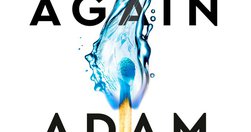
A YANSS interview with Adam Grant, author of Think Again: The Power of Knowing What you Don’t Know. Generally an "extensive exploration of how to rethink your own thinking", including his WorkLife podcast interview of Margaret Atwood on procrastination.(When annotating a podcast I really like a transcript, but there was none for this epi…
In this edition: a first tweak to the default navigation phrase, a look ahead to the next changes, and some of the things I've recently read (and written) influencing my ideas for MyHub.ai as I prepare a chapter of an upcoming book on Personal Knowledge Management.
We've tweaked the navigation phrase so that the default is to show "All the" resources on your home page, rather than just "The Best". More tweaks are on the way.
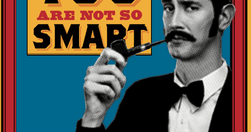
"Feeling stuck?" This YANSS podcast is with "professor, author, therapist, and speaker Britt Frank, a trauma specialist who ... helps clients to get out of the feeling of being stuck."This was well-timed, because stuck is something I've been feeling for a while now. Perhaps unjustifiably, but nevertheless her book's d…
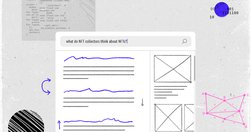
Basically this piece starts to unpack for me my ideas of what millions of Hubs networked together and processed by AI would offer the world in terms of content discovery:With "tools like Notion, Airtable, and Readwise ... people are aggregating content ... reviving the curated web. But at the moment these are mostly solo affairs... fragmented…
Covers "a new class of apps called “Integrated Thinking Environments (ITEs)”... [and] NOTE framework, used to describe the specific feature sets ITEs provide... examples and some future directions".The term ITE riffs off "Integrated Development Environments... provide developers a comprehensive set of tools ... a kind of augmented c…
Loading more...
Relevant Overviews
- Communication Strategy
- Content Strategy
- Online Strategy
- Online Community Management
- Social Media Strategy
- Content Creation & Marketing
- Online Architecture
- Digital Transformation
- Change & Project Management
- Thinking tools
- Zettelkasten
- Fediverse
- Learning from Andy Matuschak
- Blockchain, Crypto, NFTs etc
- Innovation Strategy
- Surveillance Capitalism, Social media and Polarisation (Overview)
- Communications Tactics
- Psychology
- Personal Productivity
- Social Web
- Media
- Politics
- Communications Strategy
- Science&Technology
- Business